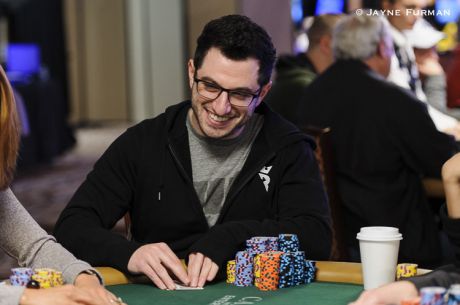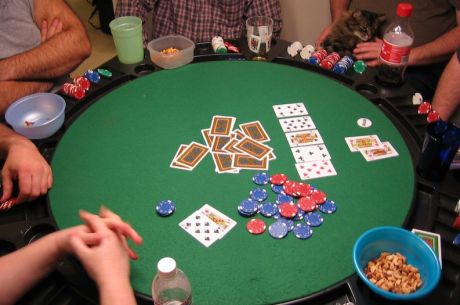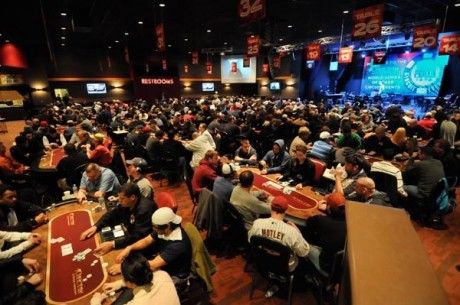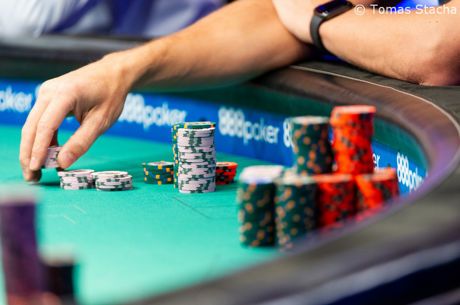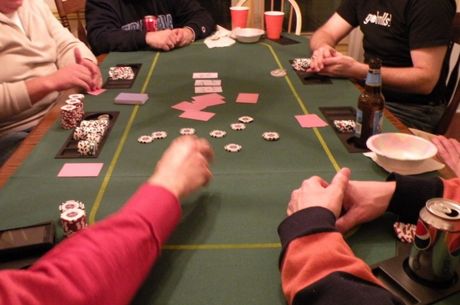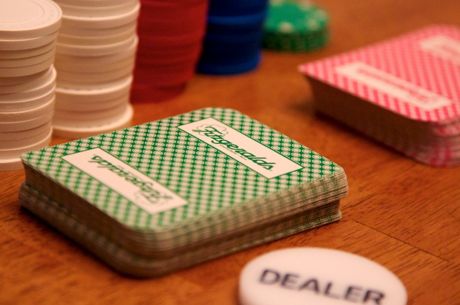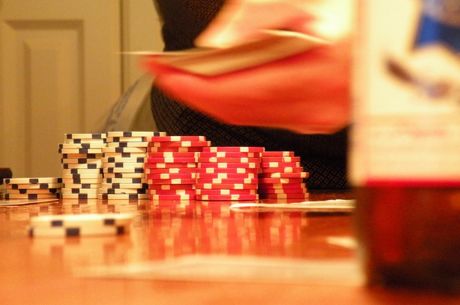Home Game Heroes: Getting Invited Back to the Game
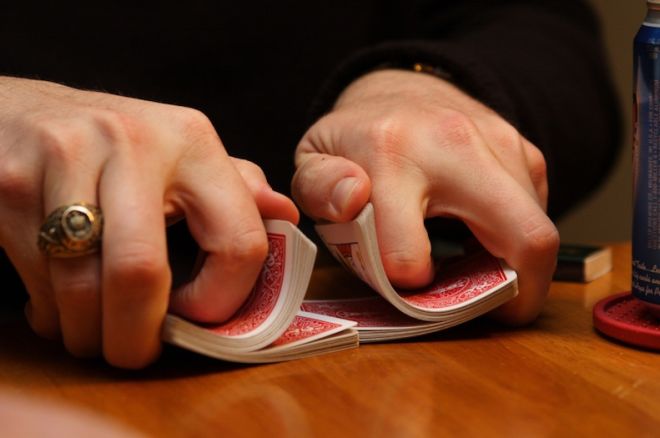
So you��ve found a good home game. Realize that by nature of the fact that you are a thinking, strategy-minded poker player, you already may have one or two strikes against you when it comes to getting invited back.
As a reader of poker strategy articles (and someone who studies the game in other ways, too), you��re probably better than most of the people you play against in a typical home game. As such, you will likely be in many situations when you are pulling in the pot �� and making losers of your opponents. Such a dynamic does not do much to engender great affection from your fellow poker players. But if handled correctly, it need not get you bounced from the game, either.
Here is a list of 10 things you can do which will make it more likely you��ll be welcomed back to your ideal game.
1. Arrive as planned
People who organize poker games have one constant concern, namely, that their game won��t go off as scheduled. Hosts hate having people not show up or show up very late. So if you��ve accepted an invitation to a game, attend. Similarly, arrive at the time you��re supposed to arrive �� neither early nor late.
2. Stay until the end
It also helps to stay until the end of the playing session, no matter how late that is. There are two reasons why this is a good idea.
First of all, no matter what the house policy about leaving a winner, people do not like seeing their lost money leaving the room with no chance of winning it back in that session.
The second reason to stay is to be part of the group at the end of the night that decides who is invited back for the next game. If you��re not there at the end because you left early, you run the risk of having the next game fill up before you are called �� especially if you got into the game as an alternate or a fill-in for someone who couldn��t play.
3. Don��t be a bad winner or loser
This might seem obvious advice, but it��s worth keeping in mind. It��s true that some players actually try to be a bad sport. But some things are unintentionally galling �� and you should avoid them.
Resist the urge to fist pump, shout ��YES!�� or make any other outburst when you win a hand. Just win quietly. Similarly, don��t moan or point out your bad beat when you lose, and certainly don��t ever criticize your opponent for his play whether you lose or win.
4. Act in turn, and act fairly quickly
Pay attention to the action. People really can��t stand it when other players jump the gun or don��t pay attention to the fact that it��s their turn. And while you may be making serious decisions, realize that having to wait for someone to act is very annoying, especially if it is other than a rare occurrence.
If you must pause a long time for a tough decision, ask for a little extra time to think, if only so the other players know that you aren��t just spacing out.
5. Accept the house rules
Sure, you��ve been around and may know that some of the house rules are not what they do in a casino, or even that they are generally bad for the game. But don��t object to them. Accept them and move on.
This is especially true when it comes to various procedural questions, string bets, or what hands make up the perfect low. If, over time, people want to know your opinion, you can gradually and modestly share it. But quoting a casino rulebook or acting like you are an expert is a sure ticket out of the game.
6. Bring something to the game
The first time you come to a game, bring a six-pack or some food or a case of water. If everyone laughs because the host always takes care of those things, share in their laughter. Better to spend an extra $10 than be seen as a cheapskate.
7. Don��t grill the host with questions about the game
This is not a casino, where it is the poker room manager��s job to give you all the information you require to understand completely all the rules and regulations. This is someone��s home �� in which he has played poker, presumably, for a long time. You are a guest. If you interrogate him about every single rule and nuance regarding the game, you risk making the host feel defensive, making yourself look like a jerk, and starting things off on the wrong foot.
Better to smile, follow along, and let people explain things to you as they go. Don��t worry. People usually like to explain house rules to a newcomer. It makes them feel knowledgeable.
8. When in doubt, shut up
No one ever got kicked out of a game for talking too little. But the reverse is surely not the case. Everyone seems to disagree with your politics? Shut up about it �� or laugh it off if someone points it out to you.
Don��t try to win arguments. Listen politely and keep your disagreements to yourself.
9. Be a good listener
People in regular poker games have often heard the same stories from each other dozens of times. But you haven��t. So maybe they��ll want to share an oft-told tale to you, the new guy. Consider it a privilege to hear it, for a couple of reasons.
First, it is polite, and you want to be seen as a nice guy. Second, you may learn something useful and interesting about someone you hope to spend a lot of time with at the table.
10. Wear a smile
You want to be likable. That means smiling and laughing. You want to avoid looking like all you care about is the game. These are human beings you��re playing with, people who are letting you into their lives. Share in the experience happily and with some generosity of spirit.
Being positive and friendly will profit you it in two ways. First of all, you��ll be more likely to be invited back to the good game. But perhaps more importantly, if you are friendly, interested in others, and pleasant, you will have a better time at the game.
Photo: ��The Dealer,�� Aaron Jacobs. Creative Commons Attribution ShareAlike 2.0 Generic.
Ashley Adams has been playing poker for 50 years and writing about it since 2000. He is the author of hundreds of articles and two books, Winning 7-Card Stud (Kensington 2003) and Winning No-Limit Hold��em (Lighthouse 2012). He is also the host of poker radio show House of Cards. See www.houseofcardsradio.com for broadcast times, stations, and podcasts.
Want to stay atop all the latest in the poker world? If so, make sure to get PokerNews updates on your social media outlets. Follow us on Twitter and find us on both Facebook and Google+!

